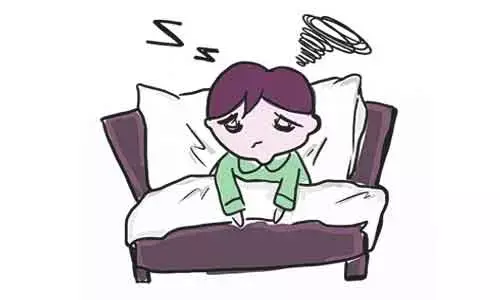- Home
- Medical news & Guidelines
- Anesthesiology
- Cardiology and CTVS
- Critical Care
- Dentistry
- Dermatology
- Diabetes and Endocrinology
- ENT
- Gastroenterology
- Medicine
- Nephrology
- Neurology
- Obstretics-Gynaecology
- Oncology
- Ophthalmology
- Orthopaedics
- Pediatrics-Neonatology
- Psychiatry
- Pulmonology
- Radiology
- Surgery
- Urology
- Laboratory Medicine
- Diet
- Nursing
- Paramedical
- Physiotherapy
- Health news
- Fact Check
- Bone Health Fact Check
- Brain Health Fact Check
- Cancer Related Fact Check
- Child Care Fact Check
- Dental and oral health fact check
- Diabetes and metabolic health fact check
- Diet and Nutrition Fact Check
- Eye and ENT Care Fact Check
- Fitness fact check
- Gut health fact check
- Heart health fact check
- Kidney health fact check
- Medical education fact check
- Men's health fact check
- Respiratory fact check
- Skin and hair care fact check
- Vaccine and Immunization fact check
- Women's health fact check
- AYUSH
- State News
- Andaman and Nicobar Islands
- Andhra Pradesh
- Arunachal Pradesh
- Assam
- Bihar
- Chandigarh
- Chattisgarh
- Dadra and Nagar Haveli
- Daman and Diu
- Delhi
- Goa
- Gujarat
- Haryana
- Himachal Pradesh
- Jammu & Kashmir
- Jharkhand
- Karnataka
- Kerala
- Ladakh
- Lakshadweep
- Madhya Pradesh
- Maharashtra
- Manipur
- Meghalaya
- Mizoram
- Nagaland
- Odisha
- Puducherry
- Punjab
- Rajasthan
- Sikkim
- Tamil Nadu
- Telangana
- Tripura
- Uttar Pradesh
- Uttrakhand
- West Bengal
- Medical Education
- Industry
Sleep restriction may amplify anger, finds study

DARIEN, IL -Sleeping is understood as essential to affective function, yet little is known about how sleep shapes more specific and contextualized emotional responses besides anxiety and depression, such as anger.New research suggests that a good night of sleep may be required to tied over anger.
This program of research comprised an analysis of diaries and lab experiments. The researchers analyzed daily diary entries from 202 college students, who tracked their sleep, daily stressors, and anger over one month. Preliminary results show that individuals reported experiencing more anger on days following less sleep than usual for them.
The research team also conducted a lab experiment involving 147 community residents. Participants were randomly assigned either to maintain their regular sleep schedule or to restrict their sleep at home by about five hours across two nights. Following this manipulation, anger was assessed during exposure to irritating noise.
The experiment found that well-slept individuals adapted to noise and reported less anger after two days. In contrast, sleep-restricted individuals exhibited higher and increased anger in response to aversive noise, suggesting that losing sleep undermined emotional adaptation to frustrating circumstance. Subjective sleepiness accounted for most of the experimental effect of sleep loss on anger. A related experiment in which individuals reported anger following an online competitive game found similar results.
"The results are important because they provide strong causal evidence that sleep restriction increases anger and increases frustration over time," said Zlatan Krizan, who has a doctorate in personality and social psychology and is a professor of psychology at Iowa State University in Ames, Iowa. "Moreover, the results from the daily diary study suggest such effects translate to everyday life, as young adults reported more anger in the afternoon on days they slept less."
The authors noted that the findings highlight the importance of considering specific emotional reactions such as anger and their regulation in the context of sleep disruption.
Hina Zahid Joined Medical Dialogue in 2017 with a passion to work as a Reporter. She coordinates with various national and international journals and association and covers all the stories related to Medical guidelines, Medical Journals, rare medical surgeries as well as all the updates in the medical field. Email: editorial@medicaldialogues.in. Contact no. 011-43720751
Dr Kamal Kant Kohli-MBBS, DTCD- a chest specialist with more than 30 years of practice and a flair for writing clinical articles, Dr Kamal Kant Kohli joined Medical Dialogues as a Chief Editor of Medical News. Besides writing articles, as an editor, he proofreads and verifies all the medical content published on Medical Dialogues including those coming from journals, studies,medical conferences,guidelines etc. Email: drkohli@medicaldialogues.in. Contact no. 011-43720751


